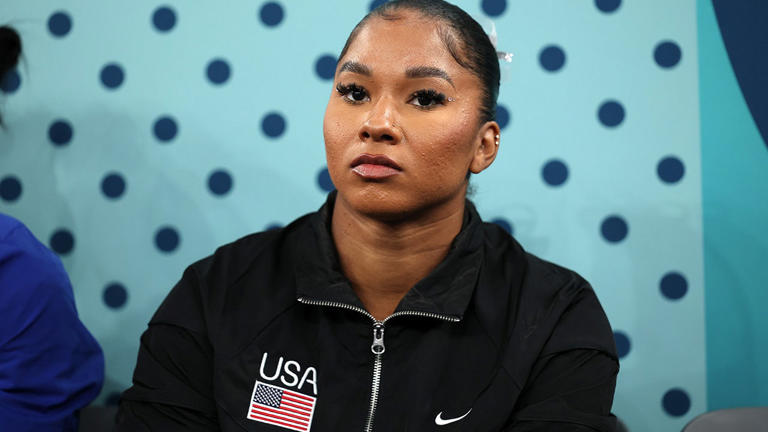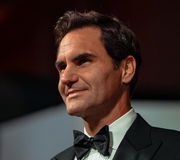

Mental health has taken center stage in the sports world lately, and it’s about time! Athletes are starting to realize that taking care of their minds is just as crucial as their physical training. One of the big names in this conversation is Simone Biles, who shared her struggles during the Tokyo Olympics. Her raw honesty about prioritizing mental health really shook things up and paved the way for others to speak up. Fast forward to this year, and Jordan Chiles is stepping into the spotlight as another advocate for mental health in gymnastics.
Watch What’s Trending Now!
Recently, the Olympics network had an eye-opening discussion with gymnastics stars like Chiles, Jade Carey, and Ellie Black, reflecting on how Biles’ bravery has transformed the sport. It’s a big deal! This year’s bronze medal controversy was tough on Jordan. She faced an avalanche of trolling after losing a medal she had worked so hard for, which was incredibly disheartening. But this isn’t the first time Jordan has dealt with mental health challenges.
Jordan was often criticized for her weight early in her career, which contributed to an eating disorder. She’s even shared with PEOPLE saying, “I was traumatized when I was younger. I was getting weighed. I was told I could only eat certain things. There were a lot of things that I was told because I had to ‘look a certain way.’” Then back in 2018, a low score at the Nationals made her want to quit the sport. That experience made her question everything. It’s heartbreaking to think how these pressures impacted her, but they also led her to seek therapy in her younger years. Unfortunately, she wasn’t quite ready to embrace that support.
ADVERTISEMENT
She thought the sport had taught her to be tough and handle everything on her own. In her chat with Olympics.com, she said, “I did try a sports psychologist when I was younger, but since you have that young mindset, you’re like, ‘No, I can do everything on my own. I’m fine,’” said Jordan. But here’s the twist: Jordan has since realized that reaching out for help is not a sign of weakness but a step toward strength.

ADVERTISEMENT
“[Now], I do say, ‘Find somebody you can talk to…, somebody you can lean on.’” As Jordan Chiles joined the national team, she began to shed the weight of her long-standing issues. Her eating disorder had spiraled out of control, driven by the relentless pressure to fit into an ideal body image. The belief that she wasn’t fit enough and needed to restrict her diet weighed heavily on her. However, with time and courage, she decided to unlearn those harmful habits and finally reached out to the team’s sports psychologist for support.
ADVERTISEMENT
Now, Jordan is on a much healthier path. She’s even allowing herself the occasional cheat meal to take a break from her strict regimen, which is a big step for her. She’s also thriving in her life and career. Recently, Jordan shared that she’s in a much better mental space and hopes to inspire other athletes to recognize the importance of asking for help. “It took me a while to actually ask for help because my sport does teach us to be independent,” she reflected.
“But when I finally did, I was at ease with my mental health and being able to say, ‘It’s okay to ask for help.’ I feel more confident in myself, and I’m able to be the Jordan that I’ve always wanted to be when I first started gymnastics.” Just a few years ago, though, things were looking quite different. Back in 2018, Jordan nearly quit gymnastics altogether, having lost her love for the sport. This reflection she has gained shows how this same mantra was followed then.
ADVERTISEMENT
Jordan Chiles almost left her gymnastics career for good
Picture this: Jordan Chiles, decked out in her leotard, stepped onto the mat like a warrior. But instead of feeling like a champ, she was battling a barrage of critics and haters. From a young age, Jordan faced a storm of negativity. Despite her ability to shrug off the trolls, Jordan found herself grappling with a far more insidious enemy—rejection. In 2018, after finishing 11th at nationals, she wasn’t selected for the national team, a painful blow for someone who had been part of the U.S. team since 2013.
This setback nearly pushed her to hang up her leotard for good. She felt like she was losing her love for the sport, convinced that gymnastics just didn’t want her anymore. Enter Simone Biles, the superhero of friendship! When she heard Jordan was considering retirement, Simone swooped in like the best friend every athlete needs.
Top Stories
Greg Biffle’s $4M Worth Prized Possession Still Without a Buyer Leaves NASCAR Fans Heartbroken

LIV Golf Braces for Another Possible Exit in Wake of Brooks Koepka Departure

Sean Payton Announces Retirement Plans as Broncos HC Demands Improvement From Bo Nix & Co. Before Playoffs

Biff Poggi All But Confirms Bryce Underwood’s Michigan Future After Announcing His Own Departure

Roger Federer Draws Criticism from Swiss Government Chief for Tourism Boom in Country

Amanda Balionis Confirms New Relationship Ending Months of Rumors

ADVERTISEMENT

She invited Jordan to train at the World Champions Centre, the gym run by her parents. Jordan took the leap and headed to Texas, and that’s when everything began to change. Training with Simone turned out to be a game-changer for Jordan. She discovered that gymnastics didn’t have to be all about strict routines and self-doubt. Watching Simone compete brought a lightness to the sport that had been missing for her. “I discovered that gymnastics doesn’t always have to be about strictness and being so hard on yourself and having so much doubt,” she said.
ADVERTISEMENT
Fast forward three years, and Jordan placed third at the Olympic Trials, earning her spot on the team heading to Tokyo and even made it to her second Olympics in Paris in 2024. Talk about a comeback! Not only did she find her footing again, but she also snagged two Olympic medals—one gold (Paris 2024) and one silver (Tokyo 2021). So, hanging up the leotard? Yeah, that definitely wasn’t the right move!
ADVERTISEMENT
ADVERTISEMENT
ADVERTISEMENT

